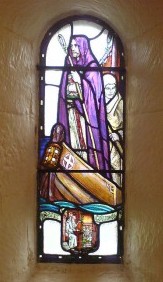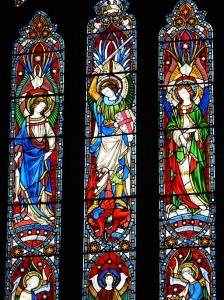Columba of Iona

Feast Day: June 9
Canonized: Pre-Congregation
Columba (521-597) was born of a royal family in Donegal, Ireland, but he is best known as one of the most famous Scottish saints. He became a monk at an early age and founded monasteries in different parts of Ireland. He was forced to leave Ireland because of a personal feud that turned into a war. Bishops and abbots exiled him from Ireland, and twelve companions from his monasteries went with him.
The missionaries settled on Iona, an island off the west coast of Scotland. Under Columba’s direction, a monastery was built and, from there, Columba brought Christianity to much of Scotland. He devoted himself to training monks, making peace between the warring groups in Scotland, and copying sacred manuscripts. Legend tells us that Columba himself hand-printed 300 copies of the Gospel. Iona became known as a center for learning in that part of the world.
Another famous legend is about a miracle God worked through Columba. He and several of his monks traveled to Northern Scotland, where the people were known as the Picts. Their goal was to preach the Good News and to convert and baptize the Picts. The missionaries went immediately to the castle of King Brude, the ruler of the Picts, who would not allow them to enter the castle. Tradition says that Columba then made the Sign of the Cross in front of the castle doors. Immediately, the bolts fell from the doors and the doors opened wide. King Brude was awed by such a powerful sign from God and listened respectfully to Columba. He then asked Columba to baptize him. Many of his subjects followed his example.
We remember St. Columba for his great faith. He lived the cardinal virtue of fortitude. He taught the pagan and war-like people of Scotland about Jesus even though it was dangerous.
He is sometimes known as St. Columbkille and is the patron of Scotland, Ireland, bookbinders, and poets.




Comments are closed.